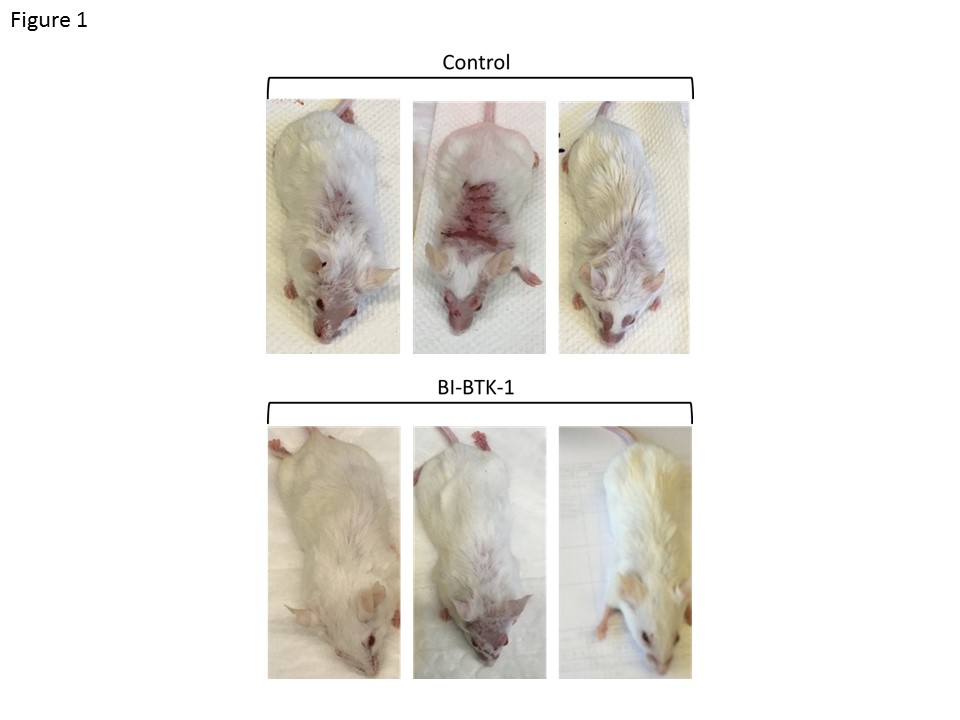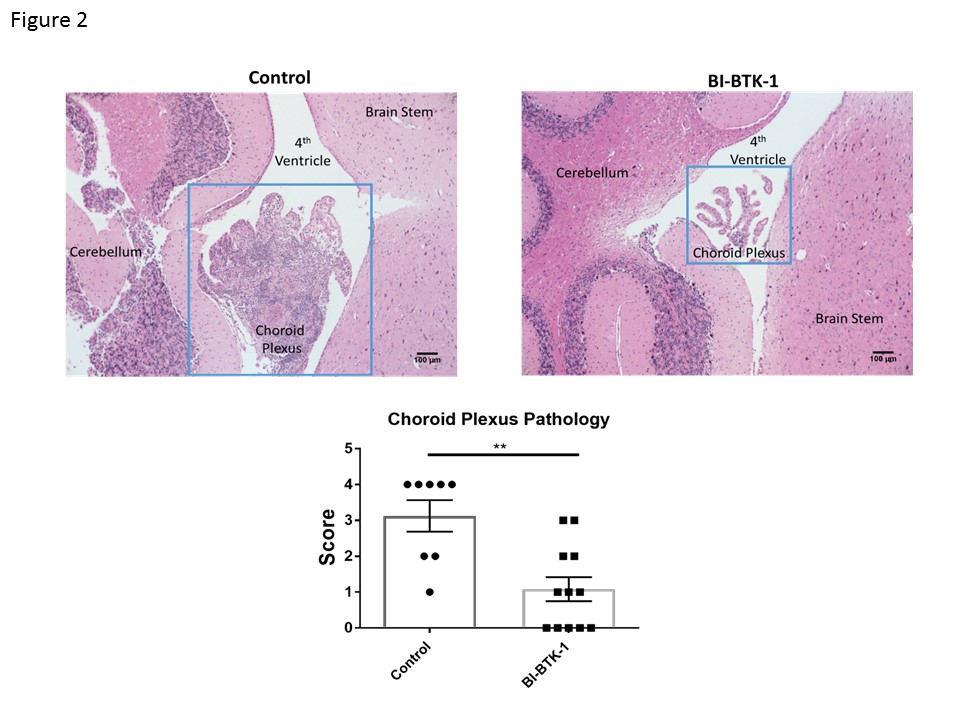Session Information
Session Type: ACR Poster Session A
Session Time: 9:00AM-11:00AM
Background/Purpose:
The importance of macrophages in the pathogenesis of cutaneous and neuropsychiatric systemic lupus erythematosus (SLE) is well established. Additionally, autoantibodies produced by autoreactive B cells are implicated in both the skin and brain disease associated with lupus. Bruton’s tyrosine kinase (BTK) plays an important role in several key macrophage and B cell functions; therefore, we used a novel BTK inhibitor, BI-BTK-1, to target both macrophage and B cell dependent disease pathways in the MRL/lpr murine model of SLE.
Methods:
Starting at 8-9 weeks of age, female MRL/MpJ-Faslpr/J (MRL/lpr) mice were treated with BI-BTK-1, a highly selective BTK inhibitor, via medicated or control chow (Control mice, n=8; BI-BTK-1 treated, n=12). We quantified the development of skin lesions, and additionally assessed neuropsychiatric disease manifestations via comprehensive behavioral testing and immunohistochemical analysis of brain tissue.
Results:
Treatment with BI-BTK-1 significantly attenuated the skin inflammation and cognitive deficits associated with disease in the MRL/lpr strain. Specifically, BI-BTK-1 treated mice had less macroscopic (Fig. 1) and microscopic skin lesions, and reduced cutaneous cellular infiltration. Furthermore, skin from treated mice had significantly diminished inflammatory cytokine expression, including reduced protein levels of TNF, IL-6, IL-17, MCP-1, and GM-CSF. BTK inhibition also significantly improved memory function (p<0.05), and dramatically decreased accumulation of T cells, B cells, and macrophages within the brain, specifically in the choroid plexus (Fig. 2).
Conclusion:
Targeted therapies may improve the response rate in lupus driven target organ involvement, and decrease the dangerous side effects associated with more global immunosuppression. Overall, our results suggest that inhibition of BTK with BI-BTK-1 may be a promising therapeutic option for cutaneous and neuropsychiatric disease associated with SLE.
FIGURE 1:
FIGURE 2:
To cite this abstract in AMA style:
Chalmers S, Wen J, Doerner J, Stock A, Cuda C, Makinde H, Perlman H, Bosanac T, Webb D, Nabozny G, Klein E, Fine JS, Ramanujam M, Putterman C. BTK Inhibition Ameliorates Lupus-Associated Neuropsychiatric and Skin Disease [abstract]. Arthritis Rheumatol. 2017; 69 (suppl 10). https://acrabstracts.org/abstract/btk-inhibition-ameliorates-lupus-associated-neuropsychiatric-and-skin-disease/. Accessed .« Back to 2017 ACR/ARHP Annual Meeting
ACR Meeting Abstracts - https://acrabstracts.org/abstract/btk-inhibition-ameliorates-lupus-associated-neuropsychiatric-and-skin-disease/


